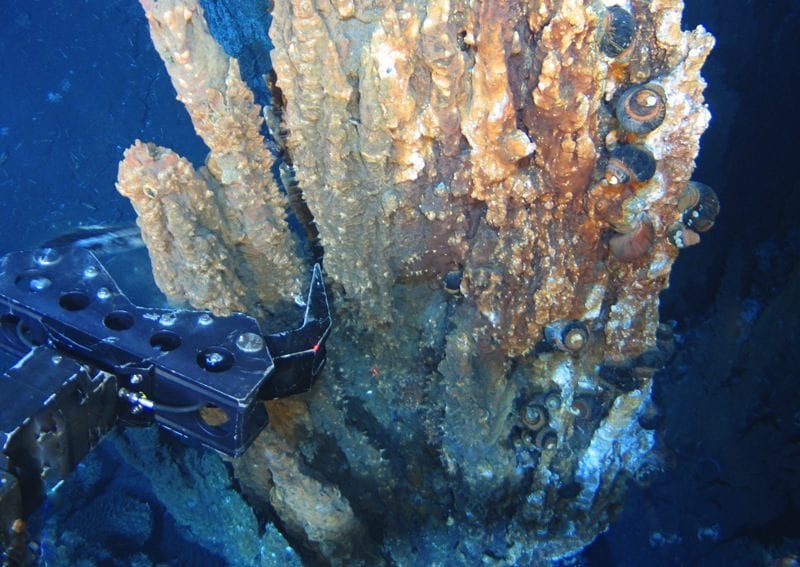By: Mellie Samson Jr
Send to a friend
The details you provide on this page will not be used to send unsolicited email, and will not be sold to a 3rd party. See privacy policy.
[PORT MORESBY] After long delays, the world’s first sea bed mining project in Papua New Guinea (PNG) is back on track despite stiff opposition from green groups, church leaders and scientists.
In a press conference last 30 May, Mel Togolo, PNG country director of the Canadian mining firm Nautilus Minerals, announced that the Solwara 1 project is ”gaining momentum”, with production expected in 2016, following the settlement of disputes on counterpart funding from the PNG government. He said their firm has also completed the assembly of a bulk cutter, the first of heavy robotic machinery to be used for underwater excavation.
Nautilus is the first company to commercially explore the ocean floor for polymetallic seafloor massive sulphides. These sulphide deposits contain high grades of copper, gold, silver and zinc. The firm got its environmental and mining permits in December 2009 from the PNG government to start operations at a location in the Bismarck Sea, north of PNG.
Issues concerning the PNG government’s failure to pay its equity share delayed the project for the past years. But the dispute was resolved last April after the government paid Nautilus a non-refundable deposit of US$7 million through a loan from the Bank of South Pacific. This is part of the government’s US$120 million investment for an initial 15 per cent shareholding in the Solwara 1 project. The government is expected to increase its share to 30 per cent in the next 12 months.
“Not much is understood yet about the living organisms found around the hydrothermal vents where the mining will take place.”
Richard Steiner, University of Alaska
But in a show of growing resistance, 80 per cent of the respondents in a recent poll by a PNG daily newspaper voted against the deep sea mining venture.
In January 2014, the head bishop of the 1.2 million-member Evangelical Lutheran Church of PNG, Giegere Wenge, issued an official statement, entitled “No to experimental deep sea mining in PNG”. The church organisation has also challenged PNG Prime Minister Peter O’Neill, who is a member of the denomination, to “listen to the call of his people”.
Opponents emphasise that more scientific research is needed to ascertain the social and environment impacts of sea bed mining on marine life as well as fisheries, one of the major revenue-earning sectors in the island nation.
But Nautilus chief executive Mike Johnston argues that since the project area is located 30 kilometres off land, “there are no villages that need to be disturbed and the economic benefits are also quite pronounced”.
Still, scientists such as Richard Steiner, a marine conservation professor from the University of Alaska, expressed fear that by going ahead with sea bed mining, Nautilus would endanger marine organisms or even cause their extinction.
In an independent review of the environmental impact of the project, Steiner noted: “Not much is understood yet about the living organisms found around the hydrothermal vents where the mining will take place, including the likely impacts that sea bed mining will have on their existence.”
This article has been produced by SciDev.Net's South-East Asia & Pacific desk.














